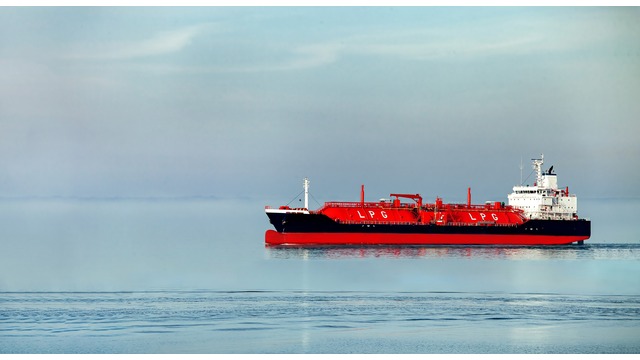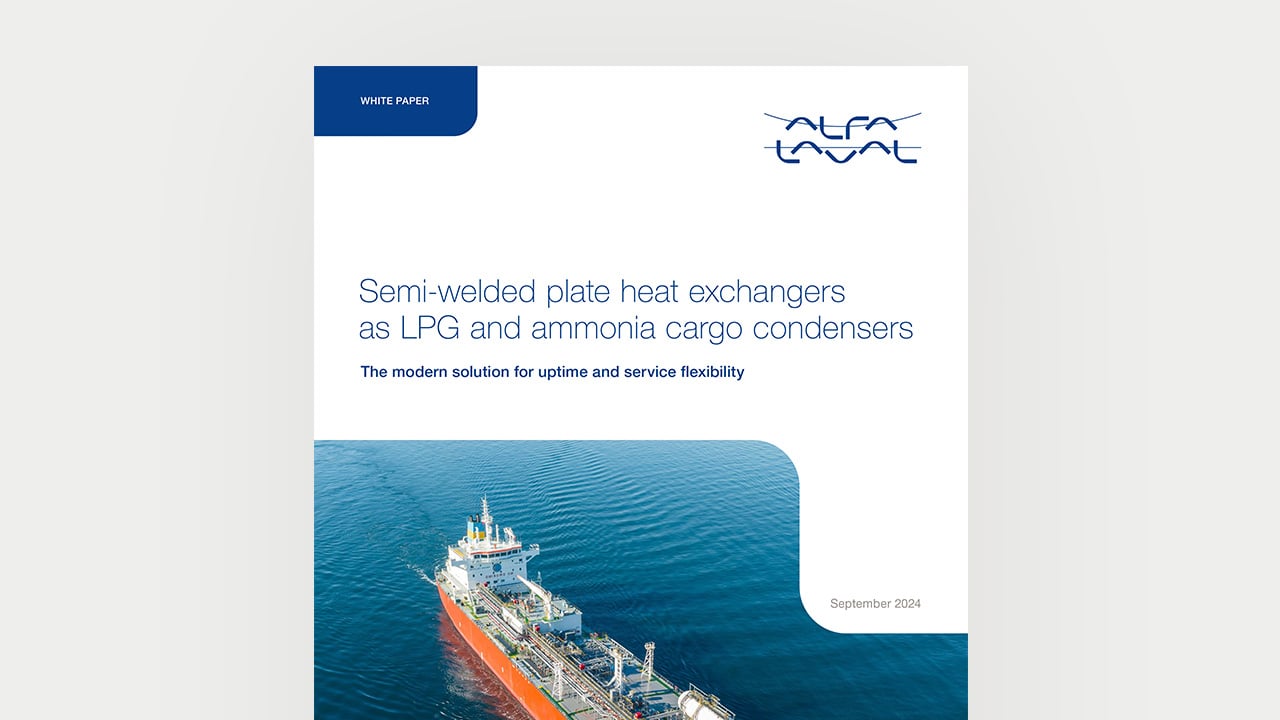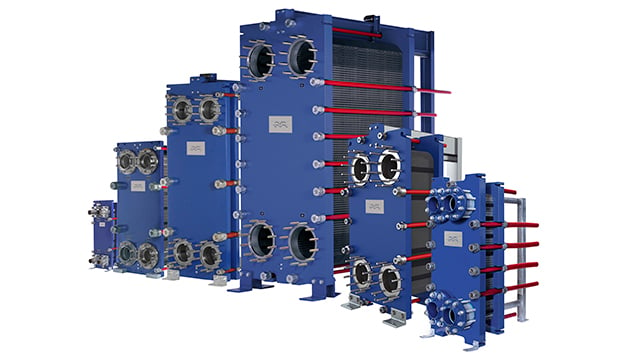Heating and cooling for LPG and ammonia cargo handling
Global growth in LPG and ammonia (NH3) demand has increased the need to transport these cargoes by sea. Due to the physical characteristics that LPG and ammonia share, specialized cargo handling equipment is required on LPG and ammonia carriers. The cargo loading speed depends on efficient cooling in the cargo condenser, and there are additional thermal duties throughout the cargo handling system – especially if ethylene is also carried on board.
Alfa Laval has the solutions for LPG and ammonia cargo handling, both for new vessels and for replacement of existing cargo condensers. To minimizing downtime, replacement can be completed during a voyage or dry docking.


LPG and ammonia demand specialized cargo handling systems
LPG and ammonia demand specialized cargo handling systems due to their challenging characteristics. Efficient cooling in the cargo condenser is crucial, and Alfa Laval marine semi-welded plate heat exchangers are the ideal choice for this equipment. Read our white paper to learn how they combine high efficiency with easy service on board.
Condensing LPG and ammonia cargo
Efficiently handling LPG or NH3 cargo
The loading speed of an LPG or ammonia carrier is determined by a number of factors. One of these is the cargo condenser capacity, which is influenced in turn by the temperature and flow rate of the seawater, the condensing pressure and the cargo tank temperature.
A semi-welded plate heat exchanger offers high capacity that is further extendable by adding plates. It thus ensures the highest possible loading rates under the given circumstances. A semi-welded plate heat exchanger is also suitable as the cargo heater, which is used when offloading the LPG or ammonia.
The temperature of the lubricating oil for the compressor is maintained by the compressor oil cooler. For the oil cooler, a copper-brazed heat exchanger offers the best balance of compactness and efficiency.
Carrying both LPG and ethylene
On an LPG/E carrier, which has interconnected LPG and ethylene cargo systems, the ethylene must be cooled to a far lower temperature than the LPG. A semi-welded plate heat exchanger is ideal for the ethylene refrigerant condenser, just as it is for the LPG cargo condenser.
For the refrigerant intercooler, a copper-brazed heat exchanger is normally suitable, since the refrigerant is typically propane. However, copper is incompatible with ammonia, which is an alternative refrigerant. If ammonia is used, a heat exchanger in 100% stainless steel is the correct choice.
Products
Semi-welded plate heat exchangers
Semi-welded plate heat exchangers are the best available technology for LPG and ammonia condensation, as well as LPG fuel gas conditioning. They have proven benefits compared to alternative technologies, including efficiency, robustness and serviceability.
Long-lasting and easy to maintain, Alfa Laval semi-welded plate heat exchangers provide high uptime and true peace of mind. They can be installed on new vessels or retrofitted to replace other technologies with only minor piping adjustments.

CBM
The Alfa Laval CBM line of copper-brazed heat exchangers combines a gasket-free design with a wide performance range. The small footprint and high efficiency of CBM heat exchangers is an excellent fit for compressor oil coolers, and the specialized CB ACMH220 meets the additional needs of ethylene refrigerant intercoolers.
AlfaNovaM
The AlfaNovaM line of marine heat exchangers is manufactured in 100% stainless steel using Alfa Laval’s patented AlfaFusion technology. Because of their copper-free construction, AlfaNovaM heat exchangers can be used for ethylene refrigerant intercoolers when ammonia is the chosen refrigerant.
Services
Marine service network
Our dedicated Marine Service Network supports you with parts and expertise, wherever you are, whenever you need it. By ensuring greater uptime, availability and optimization, we help bring you peace of mind, and maximize your return on investment.
How can we help you?
Please contact us for questions and service requests.
For marine emergency service, please call +46 4636 7700.
